Farewell Juan Martin Del Potro, the “fifth Beatle” who mixed it with the Big 4
The Argentinian will be remembered as a gentle giant with a monstrous forehand, who had the temerity to interrupt the domination of Rafael Nadal, Roger Federer and Novak Djokovic – helping Andy Murray along the way
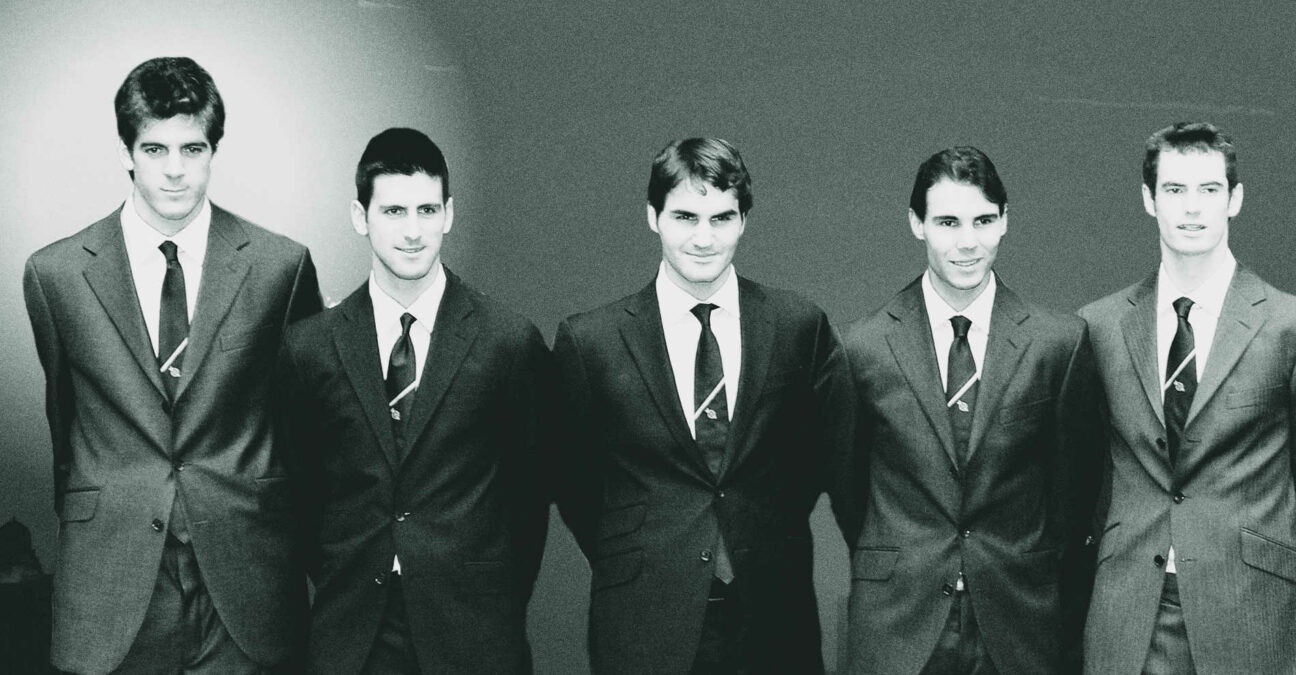 © Prosport / panoramic (2009)
© Prosport / panoramic (2009)
The success of Rafael Nadal, Roger Federer and Novak Djokovic over the past decade and a half has meant that very few other players have been allowed a look in. The Big 3, who have won 61 Grand Slams between them, briefly became a Big 4 when Andy Murray added three Grand Slam titles, two Olympic golds and Davis Cup glory to his numerous tournament wins around the world, while Stan Wawrinka, who also won three slams, put his name in the mix, even if he always said the others were more consistent than him.
But for injuries, though, there would surely have been a Big 5. Juan Martin del Potro, the tall Argentinian, nicknamed The Tower of Tandil, won 22 titles in his career, with his crowning glory coming early, at the 2009 US Open, when he beat Nadal in the semis and then Federer in the final for a first Grand Slam title and late on, when he led Argentina to Davis Cup glory in 2016. In some ways, he’s the forgotten man, the fifth Beatle, if you like.
But for his well-documented injuries – he has undergone four wrist surgeries and four knee operations – Del Potro would surely have added to his Grand Slam tally. He beat the world No1 a whopping 10 times in his career – more than any other player who did not reach world No 1 – and he owns a combined 17 wins over the big three in all (seven over Federer, six against Nadal and four over Djokovic).
Del Potro’s career, of course, is about much more than the Big 3 or Big 4. His forehand will go down in history as one of the biggest shots tennis has ever seen; his comeback against Dominic Thiem at the 2017 US Open turned a corner of Flushing Meadows into Argentina for the night; his softly-spoken, gentle giant nature was a contrast to his natural power and his end of match bear-hugs, well, they were the stuff of legend. His connection with fellow players and his popularity around the world say everything that needs to be said about his character and personality.
2009 US Open, Federer and the biggest win of his career
Del Potro first made a name for himself when he won four straight hard-court tournaments in the summer of 2008, lifting him from a ranking outside the top 60 to inside the top 20. By October that year, he was inside the top 10 and when the 2009 US Open came around, he was the No 6 seed.
Few expected him to do what he did, though, when he swept away Nadal in a barrage of hitting in the semis, and then, from two sets to one in the final, he came back to beat Federer in the final, ending the Swiss’ run of five straight US Open titles and picking up his first.
Looking back now, his words at the time have a tinge of sadness, knowing what we know. “I just want to live this moment,” Del Potro said. “Of course I will be in the history of this tournament. That’s amazing for me. I have new opportunities in the other Grand Slams to win, because if I did here, if I beat Nadal, Federer and many good players, maybe I can do one more time.”
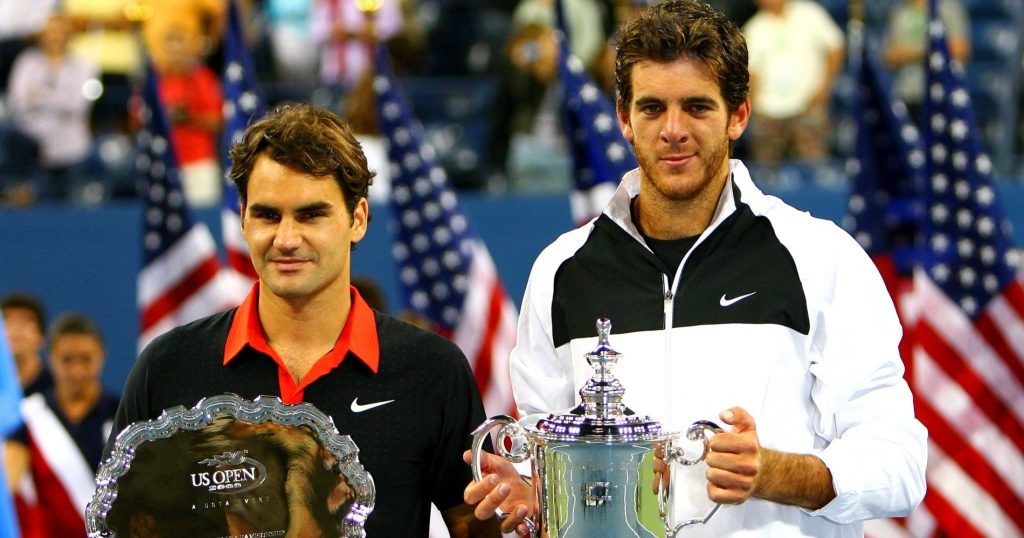
Del Potro actually enjoyed a winning record over Federer in finals, 4-2, and the Swiss said their biggest battles had built up a lot of respect between the two.
“We have had a lot of close matches,” Federer said, in 2018. “Big matches, close matches…French Open semis, US Open finals, Olympic semis, Basel finals…few World Tour Finals matches, Shanghai. Just three-setters, five-setters the whole way. It’s been good, you know.”
Interrupting the Big 4: Del Potro helps Murray
On the court, though, it was against the Big 4 where Del Potro more than held his own. In fact, it’s where he had a huge impact on the destiny of major titles, even if he didn’t actually win them himself. Just ask Andy Murray.
Their relationship may not have got off on the best foot – who can forget their first ATP Tour match in Rome in 2008, when the Argentinian said Murray and his mother (Judy) were “always the same” – but by the time Del Potro had played his last match in Buenos Aires this week (if indeed it turns out to be his last), the respect between the two was immense.
And in many ways, Murray has Del Potro to thank, partly, for helping him to win some of his biggest titles. At the 2012 Olympics, Murray faced Roger Federer in the final, still chasing his first really big title, having lost to the Swiss at Wimbledon, a match that saw Murray further endear himself to the crowd as the tears flowed.
Del Potro had exhausted Federer in the semi-finals, pushing him to 19-17 in the final set of a match which lasted four hours, 17 minutes. Come the final, he had little left and Murray, with the crowd roaring his every turn, he stormed to victory for a win that kick-started his Grand Slam-winning career.
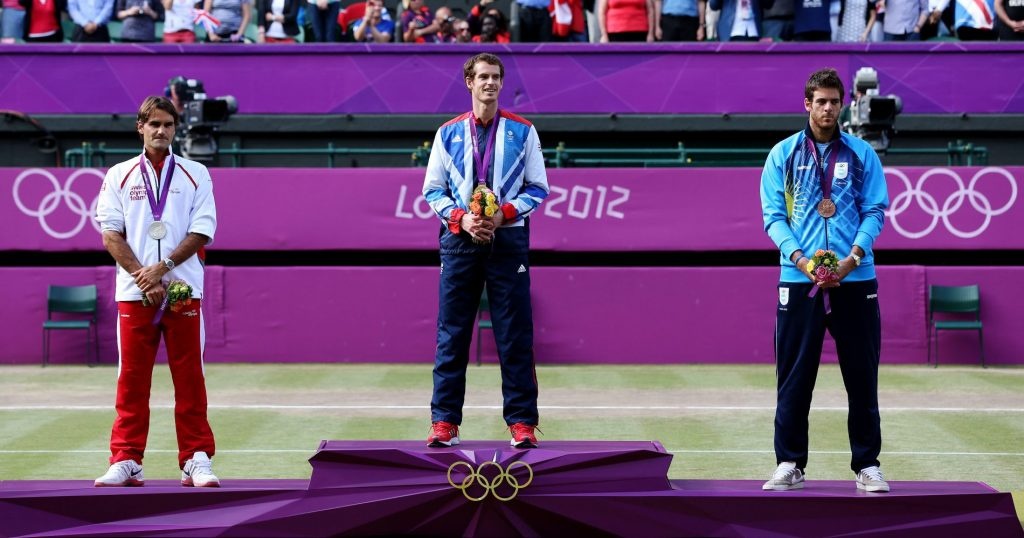
It didn’t end there, either. At Wimbledon the following year, Del Potro pushed Djokovic to five sets in their semi-final, their four minute, 43 clash at the time the longest semi-final in Wimbledon history. Two days later, Djokovic had no answer to Murray as he won Wimbledon for the first time for his first slam.
And in 2016, when Murray was going for his second gold medal, it was Del Potro who took out Djokovic in the first round – and then Nadal in the semis – to clear the way for Murray, even if it took a monumental effort from the Scot to win the final against Del Potro. Coincidence? Maybe, maybe not.
Del Potro and Nadal; epic battles, epic hugs
Del Potro and Nadal played each other 17 times, with the Spaniard winning 11 of them. But Del Potro won twice at the US Open and the thought of their encounters evokes memories of huge hitting, brutal rallies and the utmost respect, as they showed each other at Wimbledon in 2018 when Nadal won another epic 6-4 in the final set.
Nadal was full of praise for Del Potro and tried to put that monstrous forehand into words.
“He has a great forehand,” he said. “When he starts to play with that high adrenaline, I don’t know how you say, is very difficult to stop his forehand. Of course, there is couple of players that hit the forehand very, very strong, too. But his one is one of the most spectacular.”
So spectacular that Murray, commentating on BBC TV as he recovered from injury, could only laugh at the enormity of one forehand in particular.
Against Djokovic: Two big Olympic wins
In addition to the first-round win in Rio in 2016, Del Potro also beat Djokovic to win the bronze medal match at the Olympics in 2012. Though Djokovic dominated their 20 matches, with 16 wins to four losses, nine of their battles went to a deciding set and three of Del Potro’s four wins came when he wore an Argentina shirt.
The respect between the two was clear and on the eve of their last big battle, the 2018 US Open final, the Serb outlined why Del Potro had been such a great player.
“I personally like him very much, not just as a player but as a person,” Djokovic said. “He’s a dear friend, someone that I respect a lot. We all felt for his struggles with injuries that kept him away from the tour for two, three years. But he was always a top five player in the eyes I think of everyone. Even when he dropped his ranking and started to work his way up, we all knew that he has a capacity and a quality to get to the point where he is at the moment. It was just a matter of time.
“I saw today before the match against Nadal (the semi-final), a stat that he’s the player that made most wins against No. 1s of the world. That shows the quality that he has, especially in the big matches. He’s a big-time player. He’s a big-match player. He’s a Grand Slam winner.”
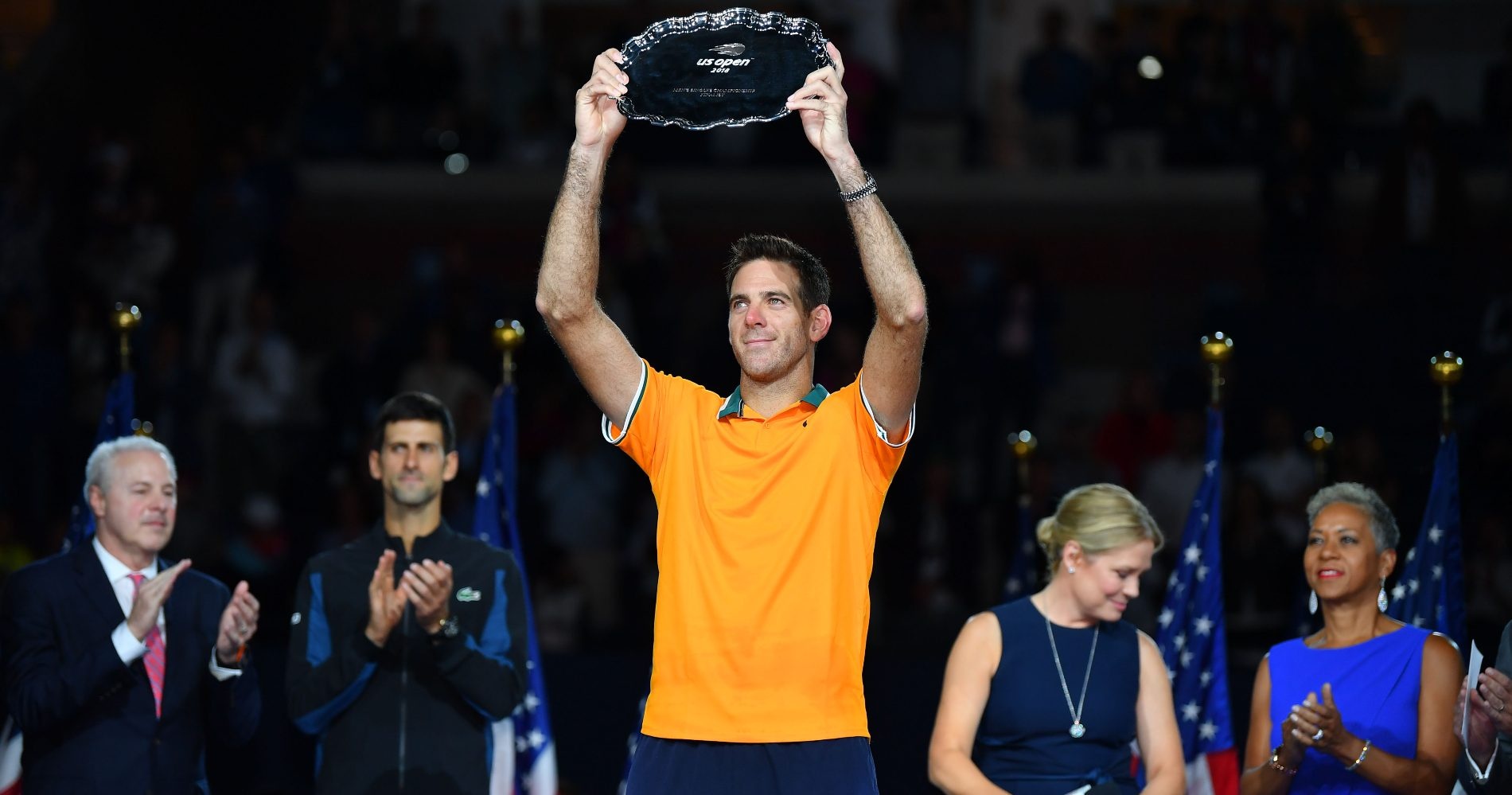
Murray: “I hope he’s OK and he gets the send-off he deserves”
Though Del Potro is keeping the door open should he somehow miraculously find a way to be pain-free again on the court, it seems likely he has played his last match. Just being pain-free in life, he said, would be something special, hoping that his knee will allow him to sleep uninterrupted.
Murray knows what that feeling’s like more than most, having almost retired due to a hip injury, with only a miraculous operation offering him the chance to play on, when he thought his time was over. In a video put together by the ATP Tour, the Scot gave the perfect explanation of what made Del Potro so strong.
“He was always competing with the top players, very dangerous,” he said. “He had a power that very few guys on the Tour have ever had. His forehand was an unbelievable shot. He was a very intelligent player, which I don’t think gets spoken about that much, because he was so powerful. He had issues with his wrist for a number of years, and had to adapt the way he was playing, he had to hit a sliced backhand and was still very competitive with the best players in the world, even with that issue.”
“He was really popular all around the world, people loved watching him play. It’s really sad, I hope he’s OK, I hope he gets the send-off he deserves and that he’s fit enough and healthy enough to play some matches, but it’s obviously really sad.”
Murray’s right but when Del Potro eventually looks back on his career, though there may be a lingering thought of “what if”, he will do so having won one Grand Slam title, picked up 21 other tournament wins and won the Davis Cup for his country, mixing it with the Big 4 every time his body allowed. Not to mention being one of the most loved players on the planet.


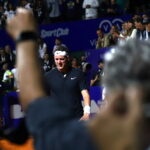
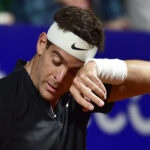
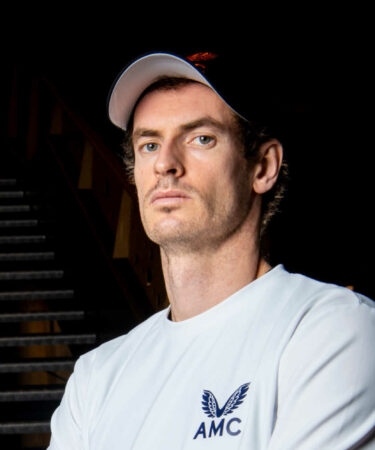
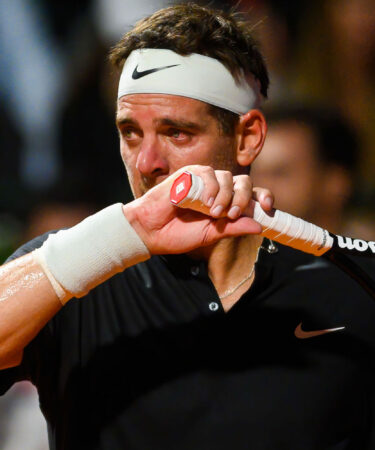
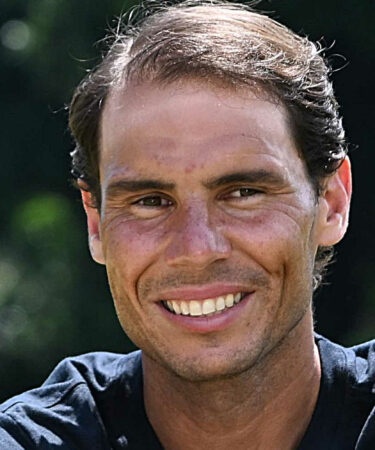

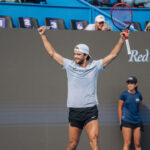
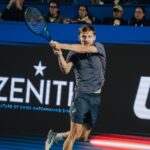


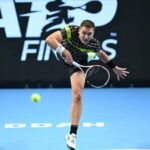
Great Player and Human being. He beat all the top ranked players in the world.